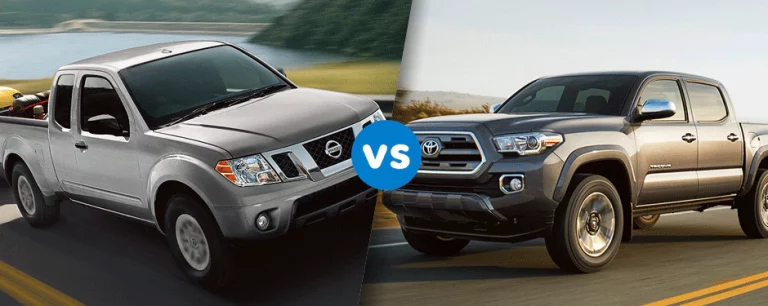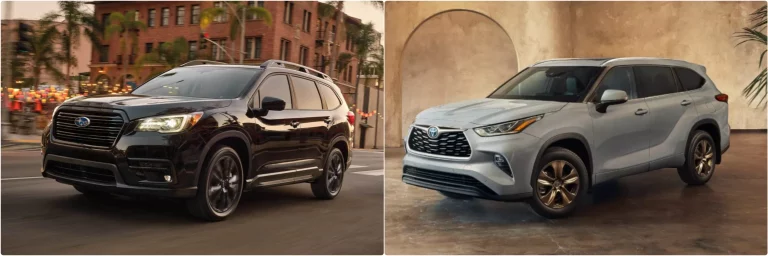
In the world of automotive reliability, two brands that have garnered significant attention from consumers are Honda and Subaru. Both renowned for their dependable vehicles, Honda and Subaru have built solid reputations in the industry. However, when it comes to deciding which brand truly reigns in terms of reliability, the choice becomes less clear-cut. In this article, we will examine various aspects such as design options, repairs and maintenance, durability, and engine performance to determine which brand stands out in this fierce competition. So, fasten your seatbelts and prepare to discover the key factors that set Honda and Subaru apart in the battle of reliability.
Design and Options
When comparing the design and options offered by Honda and Subaru, it becomes evident that both manufacturers provide a range of choices for drivers. Honda offers AWD, 4WD, and FWD options, allowing drivers to select the drivetrain that suits their needs best. On the other hand, Subaru focuses on a uniform AWD design for all its cars, emphasizing the importance of enhanced stability and traction in various driving conditions. This uniformity in design has an impact on Subaru's maintenance costs, as the AWD models may require more expensive parts and specialized maintenance compared to Honda's diverse lineup. However, it is worth noting that Subaru's commitment to AWD across all models ensures consistent performance and safety for its customers.
Repairs and Maintenance
Moving on to the topic of repairs and maintenance, it is important to evaluate the reliability of Honda and Subaru in terms of their long-term costs and potential faults. When it comes to annual repair costs, Honda has the advantage with an average of $428 per year. This can be attributed to their improved production and manufacturing processes, resulting in fewer faults. On the other hand, Subaru tends to have higher annual repair costs compared to Honda. This is partly due to the fact that their AWD models have costlier parts, increasing maintenance expenses. Additionally, common problems tend to arise after a few years of ownership. Therefore, while Honda may have a lower annual repair cost, it is important for potential buyers to consider the long-term maintenance costs associated with Subaru vehicles.
Durability
In terms of durability, both Honda and Subaru have proven themselves as reliable options in the automotive industry. When comparing the durability of Honda and Subaru vehicles, it is important to consider factors such as longevity and safety features. Honda cars have been known to last up to 200,000-300,000 miles with 14-20 years of use, making them a reliable choice for long-term ownership. On the other hand, Subaru cars typically last up to 200,000 miles with 10-13 years of use. However, Subaru vehicles excel in handling tough driving conditions with their improved safety features, such as all-wheel drive and stability control systems. Ultimately, the choice between Honda and Subaru in terms of durability depends on the specific needs and preferences of the buyer.
Engine
Honda and Subaru offer distinct engine options that contribute to their overall performance and reliability in the automotive industry. Honda is known for having one of the most reliable engines on the market, with a range of options that include their i-VTEC technology. This technology improves fuel efficiency and power delivery by varying valve timing and lift. On the other hand, Subaru uses boxer engines in all of their cars. While the boxer engine design offers benefits such as a lower center of gravity and smoother operation, it also has drawbacks. Boxer engines are larger and more complex, which can lead to reliability issues. Additionally, the vulnerability of the boxer engine design to leaks and oil consumption can further impact its reliability. Overall, Honda's i-VTEC technology provides advantages in terms of reliability and performance compared to Subaru's boxer engines.
Reasons for Honda's Reliability
With respect to Honda's reliability, one of the key factors lies in their commitment to exceptional quality control throughout their manufacturing processes. This dedication ensures that Honda vehicles are built to the highest standards, resulting in fewer faults and a lower need for repairs. In addition, Honda's maintenance costs are generally lower compared to other brands, making it more affordable for owners to keep their vehicles in top condition. Another contributing factor to Honda's reliability is their impressive engines. Honda is renowned for producing some of the most reliable engines in the market, with options such as the i-VTEC technology that offer exceptional performance and longevity. Overall, Honda's emphasis on quality control and their impressive engines contribute to their reputation as one of the most reliable car brands in the industry.
Reasons to Choose Subaru
Subaru cars offer a range of appealing features that make them a compelling choice for consumers. One of the key reasons to choose Subaru is their improved safety features. Subaru vehicles are known for their excellent safety ratings, thanks to features like the EyeSight driver assistance system, which includes adaptive cruise control, lane departure warning, and pre-collision braking. These advanced safety technologies provide added peace of mind for drivers and passengers alike. Another reason why Subaru is a popular choice is its rugged design. Subaru vehicles are built to handle tough driving conditions, with their symmetrical all-wheel drive system and ground clearance. This makes them ideal for off-road adventures or navigating through inclement weather. The rugged design not only enhances the vehicle's capability but also adds to its overall durability and reliability. Overall, Subaru cars offer improved safety features and a rugged design, making them an appealing option for consumers.
Frequently Asked Questions
How Does Honda's Design Options Compare to Subaru's Uniform AWD Design?
In terms of design options, Honda offers a wider range compared to Subaru's uniform all-wheel drive (AWD) design. Honda provides options for AWD, 4WD, and front-wheel drive (FWD), giving drivers more flexibility. On the other hand, Subaru's AWD design is consistent across all their cars, which impacts the cost and complexity of their engines. While Honda's design options may appeal to those seeking variety, Subaru's uniform AWD design offers improved stability and traction, especially in extreme driving conditions.
What Are the Most Common Problems That Arise With Honda Cars After a Few Years of Ownership?
After a few years of ownership, Honda cars may experience common problems such as transmission issues, faulty ignition coils, and problems with the air conditioning system. These issues can lead to costly repairs and inconvenience for the owners. In comparison, Subaru cars are known for their reliability and have a lower rate of common problems after ownership. When considering the reliability comparison between Subaru and Honda, it is important to take into account the specific models and their respective track records.
How Does the Durability of Honda Cars Compare to Subaru Cars in Terms of Mileage and Years of Use?
In terms of durability, Honda cars tend to outperform Subaru cars in terms of mileage and years of use. Honda vehicles have been known to last up to 200,000-300,000 miles with 14-20 years of use, showcasing their long-lasting nature. On the other hand, Subaru cars typically last up to 200,000 miles with 10-13 years of use. This reliability comparison is based on customer reviews and highlights Honda's ability to provide a more durable option for long-term use. Additionally, when considering long-term maintenance costs, Honda cars generally have lower maintenance costs compared to Subaru vehicles.
What Are the Advantages and Disadvantages of Honda's Reliable Engines Compared to Subaru's Boxer Engines?
When comparing the advantages and disadvantages of Honda's reliable engines to Subaru's boxer engines, it is important to consider different factors. Honda's engines are well-known for their reliability and fuel efficiency. They offer a range of options, including i-VTEC technology, and are built to high standards. On the other hand, Subaru's boxer engines provide safety features such as symmetrical all-wheel drive, which improves traction and stability in extreme driving conditions. However, boxer engines have been known to have reliability issues due to their size, complexity, and vulnerability.
Besides All-Wheel Drive, What Other Features Make Subaru Cars Appealing for Extreme Driving Conditions?
Subaru cars offer several features that make them appealing for extreme driving conditions, in addition to their all-wheel drive system. One notable feature is Subaru's safety technology, which includes advanced driver-assistance systems and robust crash test ratings. These safety features enhance the overall driving experience and provide a sense of security on challenging terrains. On the other hand, while Honda cars may not have the same level of safety features as Subaru, they are known for their fuel efficiency, making them a popular choice for those seeking economical and environmentally friendly driving options.





